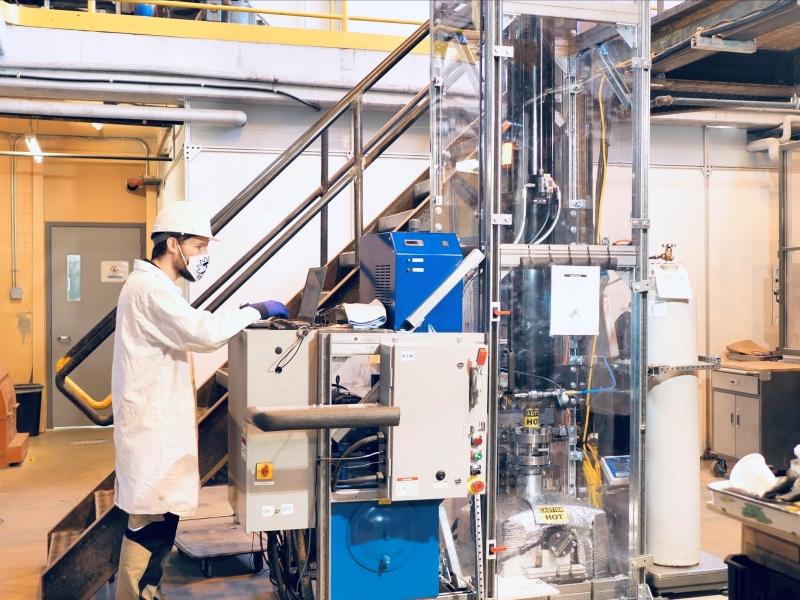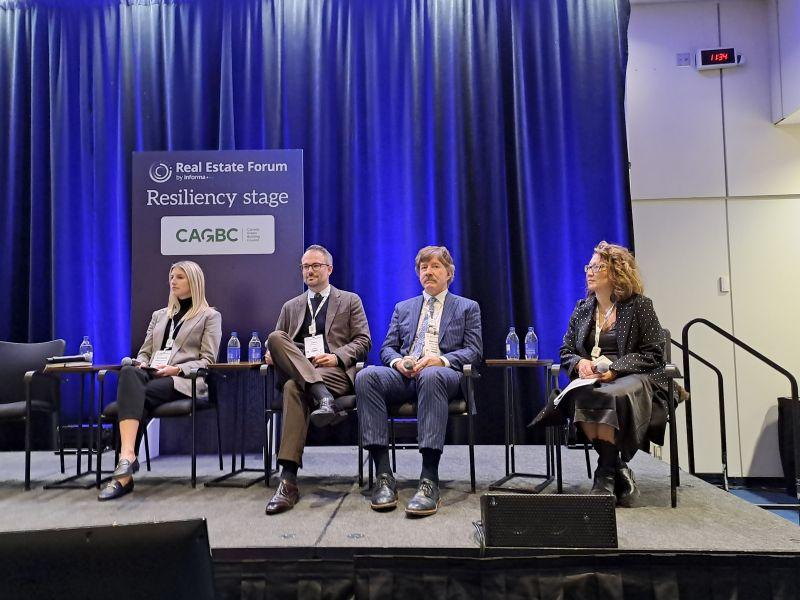
Five marine terminals owned by Gulf Stream Marine, a subsidiary of Logistec, have been certified by the Green Marine Environmental Certification Program. (Courtesy Logistec)
Marine transportation services company Logistec has certified five Texas terminals, owned by its subsidiary Gulf Stream Marine, under the Green Marine Environmental Certification Program (GMECP).
The Montreal, Que.-based company owns 80 terminals across 54 ports in North America, divided almost equally between Canada and the United States. Its five Texas terminals owned by Gulf Stream Marine are located in Corpus Christi, Manchester, Brownsville, Care and Freeport.
Marie-Chantal Savoy, Logistec’s vice president of strategy and communications for environment, social and governance (ESG), said the company embarked on the GMECP certification process because, “they are the standard. You do not have something comparable. It is the benchmark and why we chose it.”
Green Marine’s standards
The GMECP is an environmental certification program for the North American marine industry administered by Quebec-based Green Marine. The voluntary program requires members to reduce their environmental footprint across various performance indicators ranging from greenhouse gas emissions and oily discharge to waste management, underwater noise and community management.
The organization attempts to put a dent in the shipping industry’s contribution to climate change, with the movement of goods via waterways responsible for three per cent of global greenhouse gas emissions. Chemicals, oil spills, solid waste and air pollution are also harmful impacts of the marine industry which the GMECP seeks to alleviate.
Logistec is a founding member of the GMECP, joined by other members in the terminals industry like G3 Canada, Glencore and Ports America.
Despite its connections to the industry, Savoy pointed to its leadership mix of non-industry figures, the transparency of its metrics and audits conducted every two years via Transport Canada or Transport Quebec to ensure objectivity and fairness.
The GMECP 2021 report measured the participants on a scale of one to five; with one as the lowest standard for monitoring regulations, and five for excellence and leadership in the field. Across the five Texas terminals held by Gulf Stream Marine, they were graded a score of three for integrated management and quantified impacts from greenhouse gas and air pollutants, spill prevention and stormwater management, dry bulk handling and storage, community impacts, environmental leadership and waste management.
Its terminals in Canada and the U.S. were given a score of three across pollutants, spill prevention and stormwater management, dry bulk handling and storage, community impacts, environmental leadership and waste management.
“We know we can progress and improve on all these sectors and they are all important to us,” Savoy noted. “Depending on the actual terminal and its geographic situation and how it operates, it may have an area of focus that’s more important than (another) one.”
As an example, she pointed to the differences between Quebec being powered by primarily hydroelectric power (a clean energy source) versus the U.S. where a more diverse combination of fossil fuels and clean energy is utilized.
Adaptation and community engagement
She further explained Logistec’s rating, attributing its greenhouse gas and air pollutants score to “very, very low” emissions compared to other sectors, and having a small fleet of ships.
Logistec largely handles cargo and its vessels do not emit much in pollution, Savoy said, adding the company is making efforts to opt for electric or hydraulic systems when renewing its equipment. Thus, she said greenhouse gas emissions are not the company’s primary focus compared to its emphasis on minimizing pollutants and dealing with spill prevention and stormwater management, as it is a relatively low emitter.
Logistec will publish its greenhouse gas emissions figures in the next few months, Savoy stated, as they are currently being validated.
In addition to pollution reduction efforts, Savoy noted Logistec’s efforts to adapt its terminals to climate change. The company’s Gulf Stream Marine terminals are facing increasing flooding due to climate change, which is addressed with measures to combat rising water levels.
Savoy also noted what she called Logistec’s environment leadership, mentioning a corps of environmental experts 475-strong who inspect its facilities and environmental footprint to devise improvements. She said Logistec also works closely with the communities which host its operations, to make positive impacts like cleaning barges and river shores.
“Being an integral part of the community versus just arriving and operating there,” Savoy remarked.
The company has 3,200 employees and earns 43 per cent of its revenue from environmental services.
Logistec will continue to certify additional terminals, Savoy confirmed, with expectations to certify five or six per year. She pointed to the increasing demand for strong environmental practices from the industry, with business partners now seeking certifications when responding to a request for proposal.
Shareholders and stakeholders today, even those involved with companies such as steel giant ArcelorMittal (a customer of Logistec), require environmental responsibility to conduct business.
“In reality, if you have customers, they won’t let you greenwash,” Savoy said.









